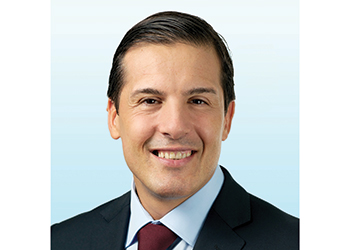The Big Middle East Report
Yours, mine or ours?
With budget and midscale hotels in the pipeline and strategy documents, the ownership landscape of the GCC’s hospitality assets is changing. TTN investigates how this impacts the market

Interest of local investors and international funds, burgeoning tourism numbers and a focus on budget and midscale hotels is steadily showing its influence on the UAE and the region’s hospitality market, which has been traditionally dominated by luxury hotels.
As the market matures, ownership patterns and structuring of hospitality assets is evolving. Experts say that the Middle East and North Africa (Mena) region is ready to see several new permutations and combinations of asset ownership. Real estate advisory, Colliers International’s inaugural Mena Hotel Market Forecast takes an overview of the region. Filippo Sona, director, head of hotels at Colliers International says: 'Investors and industry stakeholders are continually looking to understand the powerful factors shaping the Mena hospitality market... as the sector undergoes significant development, including the delivery of properties scheduled to come online in the mid- to long-term.'Sona says that capital flow towards hospitality assets has increased by 18-20 per cent for the year ending December 2014. And that the last two years have been an increased interest in foreign investors to purchase hotels or land plots to develop hospitality assets, with the majority of interest coming from investors in the GCC – Qatar and Saudi Arabia – as well as India and Turkey. Analysts say that with real estate majors such as Emaar having successfully listed IPOs in the last 12 months, the possibility for IPOs for hospitality developments cannot be ruled out, particularly in the form of local listings.Investment fundsNick Maclean, managing director, CBRE Middle East has said investment funds based in Asia Pacific have been seriously investigating the region’s hospitality market. Makkah-Madina in Saudi Arabia and Dubai in the UAE are the strongest markets on the radar. However, Dubai may have an easier threshold for such investments. Colliers divides the market into hot-spots (Cairo, Sharm Al Sheikh), sure and steady (Jeddah) and works in progress (Fujairah, Sharjah). Its maiden forecast for January highlights the re-emergence of Egypt as a regional powerhouse in the hospitality sector, with an anticipated 35 per cent and 97 per cent growth in RevPAR in Cairo and Sharm Al Sheikh respectively. However, other market realties will determine the interest of institutional investors. Dr Amine Moukarzel, resident Golden Tulip Hotels, Suites & Resorts, Mena says that investors coming together to create a fund to develop budget brands may be a reality in the region. 'The key remains that you need to develop a fund where you can have substantial investments but not for just one or two entities and not just in one country. We’re inviting a pool of private equity investors, where we will participate as well with private equity on our side, along with other owners and investors. And everyone is a winner. We will operate these hotels.' He says that even markets such as Abu Dhabi have serious potential for this segment. 'Abu Dhabi requires more budget hotels than any others. There is a demand based on the needs of executives in the oil and gas sector, the middle class travellers who enjoy a clean accommodation, equipped with technology and good meals at affordable prices.
Ownership structures Historically, ownership has been limited to local investors, at least in the non-free zone areas. Hotel owners from the region are also known to be reluctant sellers of assets. Ashish Dave, partner, KPMG UAE says that the real question is why they would sell in a high-performing market such as Dubai. 'The hospitality sector is performing well. In Dubai, with the Expo on the horizon together, along with city wide investment in tourism, this is likely to continue,' he says. Dubai saw 11,629,578 guests in 2014, registering a 5.6 per cent increase on 2013’s total, according to figures released in early March by Dubai’s Department of Tourism and Commerce Marketing (DTCM). Hotel and hotel apartment room revenues rose 12 per cent to Dh15.2 billion during the same period. In such a scenario, when investment funds make their entry, complex leasehold deals are to be expected, as is typical of properties entering their second cycle. Hotel asset disposal particularly at four/five star level or serviced apartments level is anticipated. Owners may prefer to exit rather than invest capital in asset in need of major refurbishment. In absence of direct ownership, Maclean says that the third option is where the investor creates a head-lease interest. In this, the funds get the benefit of the income from the operators. Such structures have not yet been seen in this market so far but are commonplace around the world. 'In most of the western markets this structure is currently available. There are quite often circumstances in which operator-occupiers go by this process of long leaseholds. Operator-owners may sell either the long lease or freehold,' says Maclean, referring to examples of Holiday Inn Express in Europe and Australia.This sometimes creates three levels of ownership – the developer, the owner and the long leasehold or freehold interest by the investor.
 |
Sona… capital flow towards hospitality assets has increased |
By Shalini Seth
